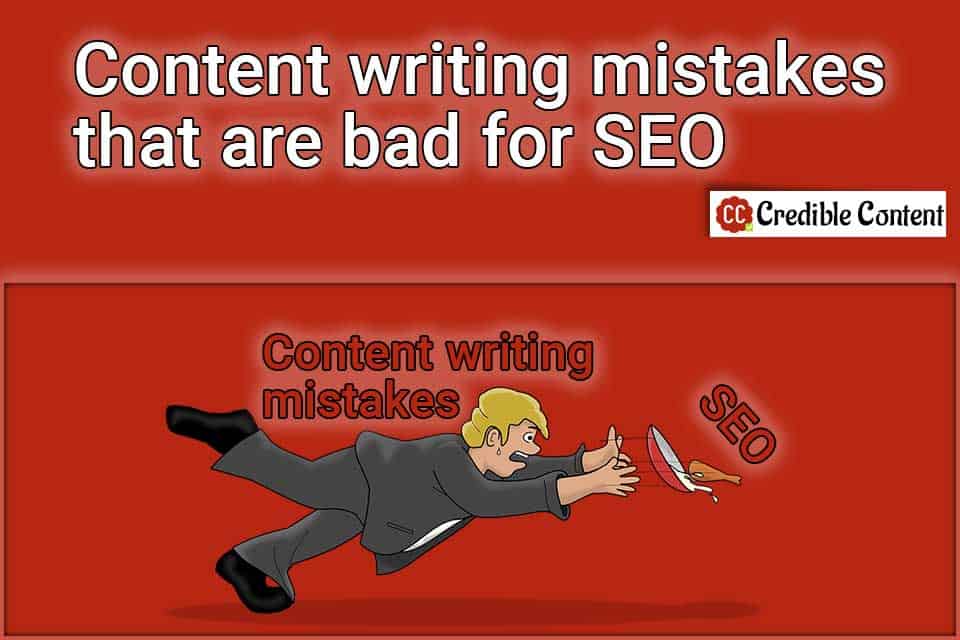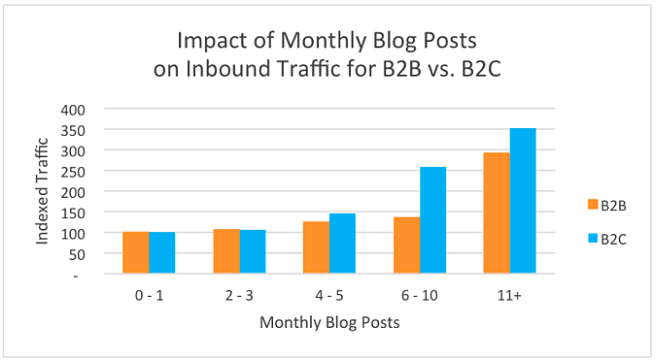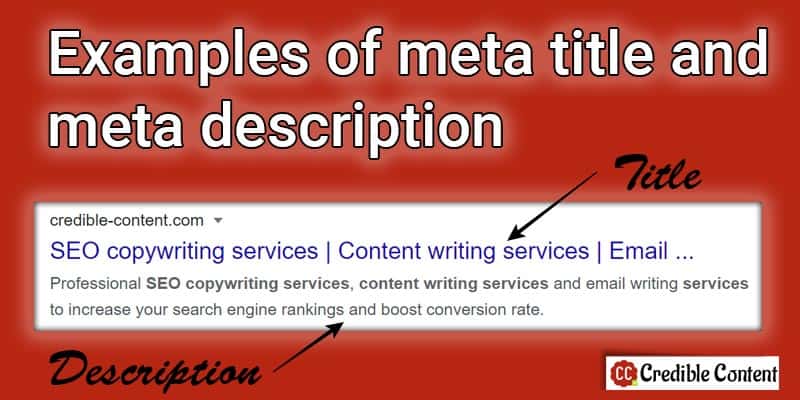
For better search engine rankings, you must publish content regularly.
It has been observed that one should publish at least 16 blog posts or other pieces of content every month to sustain a better position vis-à-vis SEO.

The HubSpot study mentioned in this blog post makes an interesting observation: There wasn’t much difference in traffic between websites that published on an average one blog post every month and between 4-5, but then, the websites that publish on an average 11 blog posts every month get six times more traffic than those who publish fewer blog posts. The difference is starker in the B2C segment.
Although, regularly publishing content is great for your content depth and consequently, search engine rankings, there are certain content writing mistakes that are bad for your SEO instead of improving it.
If you continue to commit these mistakes and on top of that, if you continue to publish your content, your digging yourself into a hole from which it will be difficult to come out.
Is regular content writing a risky proposition if you can be penalized by Google

This is the most obvious question that must come up in your mind if I talk about content writing mistakes and how they can negatively affect your search engine optimization efforts.
You may think, if you publish content regularly, and if inadvertently you are committing these mistakes, are you undoing whatever gains you have made so far?
Should you stop then?
It is up to you.
How often you should publish depends on whom you are talking to, but if you want to improve your search engine rankings as fast as possible, you must publish fresh content on your website or blog daily.
The problem with not publishing content is that if you are not publishing, your competition certainly is.
Just as you are trying to out-rank the others, the others are trying to out-rank you.
Just as you want to improve your search engine rankings, the others too want to improve them.
Hence, the question is not whether you should publish content or not, the question is, how much you should publish.
This is my personal experience: publishing lousy content is better than publishing no content but if you get into a policy of publishing lousy content (inferior quality, thin content with plagiarism issues) regularly, you can get your website blacklisted.
But these are extreme case scenarios. An average website owner or blog publisher knows that plagiarism is a big no-no.
The same is the case with duplicate content.
Although clients who contact me know the risks involved with duplicate content and they specifically mention that their content must be unique and original.
I am saying this because no one wants to commit content writing mistakes knowingly and whatever mistakes are committed, they are either due to ignorance or overzealousness.
Penalization happens in extreme cases.
The negative impact of these content writing mistakes on your SEO can be so slow that you don’t even realize that your rankings are going down for a few months.
It’s only when you view the traffic graph in Google Analytics for 3-4 months that you realize that the slope has been downwards.
It helps to avoid these content writing mistakes. They are very easy to avoid. I’m listing seven such mistakes below.
1. Ignoring search intent when coming up with topics
Here is a small video that explains what is search intent:
Search intent is the “reason” why a search engine user does a search on Google (or any other search engine).
You should be clear in your mind whom you are writing for.
I’m writing this blog post for people who want to avoid content writing mistakes that can harm their SEO.
The objective is clear.
If the objective is not clear, if you have no clue about the right search intent, you are going to end up publishing lots of content with no clear purpose.
2. Not compiling a list of keywords to be used or using too many keywords
I know, the concept of keywords has become a clichéd topic.
Everybody advises you to use the right keywords.
There is an entire industry around helping you find the right keywords for your individual web pages and blog posts.
Compiling a list of your keywords can be easy and difficult depending on the search intent you are trying to target, as mentioned above.
The keywords for this blog post can be “content writing mistakes”, “content writing mistakes to avoid”, “what is bad for my SEO”, and so on.
I often suggest that you have one or maximum two primary keywords and then a collection of five or so secondary, LSI or longtail keywords.
A big problem I have seen with many clients is that they want to use as many keywords as possible in a single blog post.
This doesn’t work.
Choose a single keyword. Choose a related keyword. Then choose a few LSI and long keywords. That’s it.
3. Not writing mobile friendly content
Many years ago, Google switched to “mobile-first” indexing.
This means, when Google comes to crawl your website, it first looks for its mobile version and it first ranks your website according to its mobile version.
If you don’t have a mobile version, this is bad for your SEO.
If you have a mobile version but your content is not mobile friendly, then again, it is bad for your SEO.
When writing content, write simple, shorter sentences.
Simple and shorter sentences are easier to read on mobile phones.
Even for the Google crawler, no matter how advanced AI and machine learning have become, learning shorter sentences is easier.
Capture one thought in one sentence.
Unlike conventional writing, avoid using multiple sentences in a single paragraph.
This reminds me: a few months ago a client was mad at the way I have written content for him.
“Are you writing poetry or blog posts?” his message screamed.
He was referring to the single-sentence paragraphs that I had used because I wanted to give him mobile friendly content.
4. Just focusing on improving search engine rankings
Yes, we all want better SEO but if this is your singular goal, you are going to be neither here nor there.
In Hindi, there is a famous saying, “Duvidha mein dono gaye, maya mili na Ram”.
When you have wrong priorities in life, you neither get worldly comforts and wealth, nor Ram (proximity to God).
Similarly, when you are just chasing SEO through content writing, you neither improve your SEO nor get more business.
Some years ago, Google started using human intelligence to evaluate your content and as a result, decide your search engine rankings.
In this video I explain how your rankings and quality content are interrelated:
Google has modified its ranking algorithm in such a manner that unless actual human beings find your content valuable, you’re not going to enjoy higher search engine rankings.
And anyway, what do you achieve out of search engine traffic if this traffic does not convert?
What is your goal?
Do you just want to improve your search engine rankings and then feel good about it, or you want to generate more business from your website?
Obviously, you want to generate more business.
Higher search engine rankings are just a means to an end: more business needs.
If you simply focus on improving your search engine rankings without paying attention to the meaningfulness of the content that your writing, you’re going to get yourself trapped in a vicious loop.
Make quality content your priority.
Have a clear purpose.
Provide value to your readers.
Only then, think about improving your search engine rankings.
5. Not making your content scannable
Scannable content means, even without having to read everything on your web page or blog post, people should be able to make out what you’re trying to say.
Hence, use headings and subheadings to organize different sections of the main messages that you want to highlight.
If you have multiple points, use bulleted lists.
Of course, as I have already written above, shorter sentences make it easier for your readers to read your content.
6. Not using your keywords and hence, not talking about the main topic within the first 100 words
There is a reason why most of the SEO experts advise you to use your main keywords within the first 100 words of your webpage or blog post.
Google is not always going to crawl your web page or blog post.
The crawler has just a few seconds to make sense of your content.
Sometimes there is lots of source code before it can even reach your main content (for example, you are using lots of WordPress plug-ins).
The connection may get lost before it can crawl everything.
The point is, there is no guarantee that Google is going to access your entire link.
Hence, you should pack everything important within the first 100 words.
At least use your main keywords creatively so that the Google crawler can make sense of your main topic.
Then, even if the crawler leaves your web page halfway, it will have some idea of what you’re trying to convey.
7. Not taking your meta title and description seriously

Recently, a client paid me separately for writing meta titles and descriptions for 25 web pages.
Your meta title and meta description appear in search results.
They also appear when someone posts your link on his or her social media timeline.
Your title is very important.
People are prompted to click your link on Google when your title is compelling.
In the search results, if your click-through rate is low, you begin to lose your current rankings.
Hence, if you want to improve your present search engine rankings, you need to convince people to click your link when they come across it in search results.
This happens through a compelling title.
The same goes with your meta description.
This is the text that appears below your listing.
People first read your title, and then for extra convincing, they read your description. Then they click the link.
Since they are not visible to your visitors when they visit your web page or blog post (because they are part of your source code) , sometimes, clients don’t take these two attributes seriously, but they are very important and they can have a big impact on your overall search engine rankings.
Concluding remarks on the common content writing mistakes
The primary purpose of publishing quality content on your website is to help your visitors as much as possible.
Even when you want to improve your search engine rankings, you want to do so that they can easily find the content that can help them.
Hence, whether you want to improve your conversion rate or your SEO, the sole purpose is to provide helpful content that people can use to make better decisions.
If you focus on this, and then make sure that your content is easily accessible and all the vital information is present on your web page, it is easier to avoid these common content writing mistakes that are bad for your SEO.
